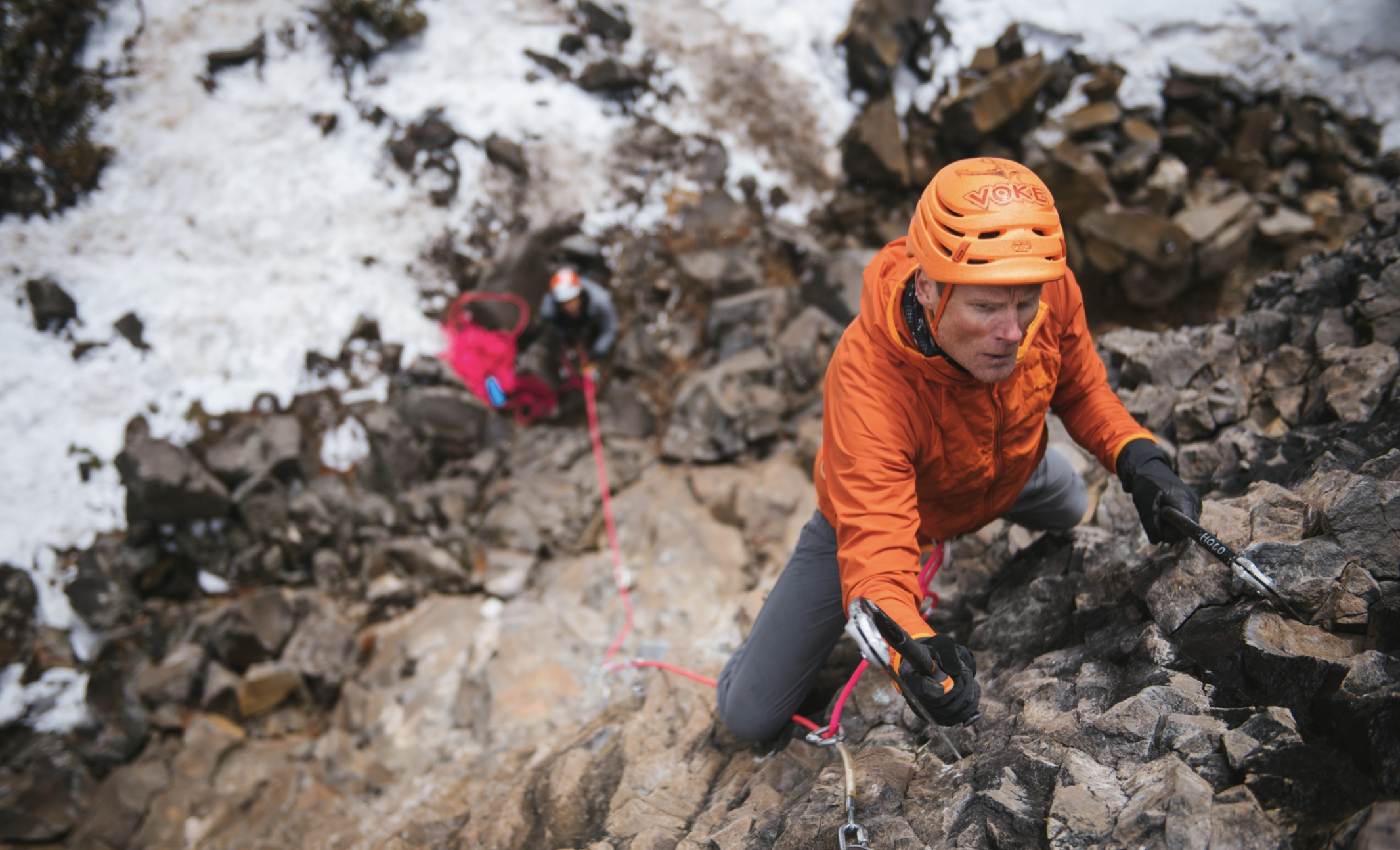I’m sure I’m not alone when I say that this depressing adventure into the surreal apocalyptic world of COVID-19 has left me longing for… well, an actual adventure. Cooped up in our houses for an obscene amount of time, wanderlust has abounded, and yet the constant disruption to our travel plans, with the seemingly endless testing and quarantining rules, have made it logistically and financially more difficult than ever.
Into this painful absence has stepped the mountaineering documentary. Back in 2018 – a fabled past of freedom and travel, where masks and words like ‘quarantine’ were relegated to the world of science fiction – I sat slumped back in a cinema chair in Christchurch, New Zealand, enthralled at what I had just watched. For an hour and forty minutes, I’d (literally) squirmed, squealed, and sweated whilst watching Free Solo, the story of American rock climber, Alex Honnold, and his ascent, without ropes or safety equipment (a style of climbing called free soloing), of Yosemite’s 3,000ft wall, El Capitan. As painfully scary of an experience as that was, I was left truly shocked by the effect it had on me.
Stumbling out into the bright sunlight, it was as if someone had injected a quadruple weapons-grade espresso shot into my veins. Adrenaline and a ravenous craving for activity overwhelmed my two friends and I as we buzzed with excitement, stumbling over ourselves like drunks on the long walk back from a night out at Salvos. It was truly an intoxicating experience, and one of, if not the most, immersive cinema experiences I’ve ever had.
Since that afternoon, it’s safe to say I’ve been hooked. Scouring Netflix, Amazon Prime, and any other medium at my availability, I’ve raced through as many similar films as I could find, desperate to recapture the intensity of feeling I’d experienced. Some filled me with a determination and resilience (The Dawn Wall), and others with a true sadness (The Alpinist). One even made me very briefly want to grow my hair out long, hang a pair of climbing shoes from my bag, and cycle a retro road bike down to Red Goat (York’s primary bouldering gym) with a cigarette hanging out my mouth to immerse myself in the oppressively cool climbing community (Valley Uprising). But the one I saw a couple of weeks ago gave me a very different experience.
As soon as I heard about Torn, a new climbing film out in the cinema, I dropped my housemate a text and organised a trip with him as soon as possible. Not knowing the story, we both went into it blind, though expected the usual combination of awe-inspiring scenery, quirky yet endearing climber, and a mentally and physically gruelling journey. We were, as it turns out, pretty wrong.
The story begins with Alex Lowe, an American climber and father of 3 boys (in order of priority) who was killed by an avalanche on 5 October 1999 skiing down the Southern face of Shishapangma in the Tibetan Himalayas. With him on the mountain face was his best friend, though also slightly jealous inferior, Conrad Anker, who managed to escape with his life. Filmed and created by Alex’s eldest son, Max Lowe, the documentary follows Alex’s relationship with his wife, Jennifer, and three kids in and around the aftermath of his death. Whilst the retrospective story and focus on grief was already different to what I was expecting, there was enough scenery, bravery, and all-round coolness to satiate my voyeuristic climbing urge. Then things became interesting.

Remember Alex’s best friend, Conrad Anker? The guy with the name so masculine it borders on ironic? Well, within three months of Alex’s death, he was dating his wife and acting as father to his kids. He literally filled in the macho-climbing-dad-shaped hole left in his best friend’s family as if nothing had happened. It was so deeply strange and disturbing, my housemate and I couldn’t help but laugh in horror.
Now perhaps it’s the English literature student in me, but this seemed too perfect to be a coincidence. If my degree, and the generally over-dramatized films and tv shows I watch, has taught me anything, it’s that the world is filled with villains, plots, and foul play.
Deeply insecure and jealous of his friend’s greater fame, success, and family, somehow Conrad had contrived a way to set off and guide an avalanche that would kill his friend, leave himself injured enough to avoid suspicion, yet still intact enough to slip seamlessly into his life as if nothing had happened. Coincidences like this don’t just happen. It’s the only plausible explanation, right?
In all seriousness, I’d rather my first published article didn’t bring with it a libel case against me, this paper, or the university. Conrad, I’m sure you’re a great guy with noble – if slightly strange – intentions. I’m just not sure I’d go skiing with you in the inhospitable mountains, hundreds of miles away from civilisation, where no one would hear me scream and my body would never be found.
Whilst not quite what I was expecting, Torn did have genuine moments of poignancy. It’s an evolution of the climbing documentary genre, incorporating morally questionable human nature and hints of a dark, Shakespearean sub-plot into the expected sublime landscapes. Climbers and non-climbers alike, if you’re craving a sweet hit of natural beauty, with a side of both unbelievably endearing and creepy characters (the rest of the films mentioned follow some of the nicest people on the planet, I promise), then perhaps the climbing documentary is worth a quick explore. I truly believe you won’t regret it.
